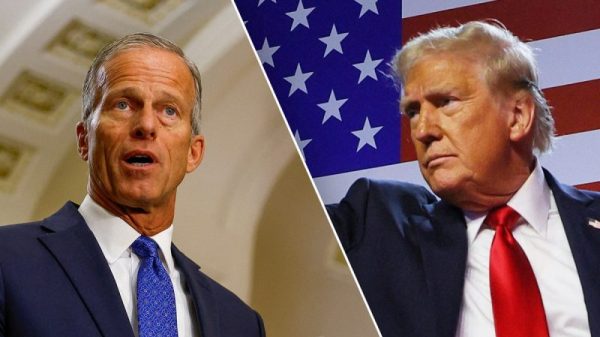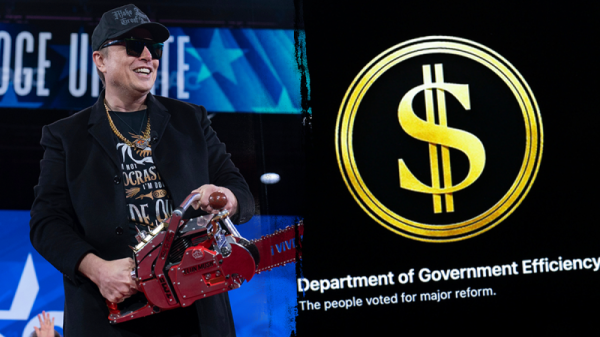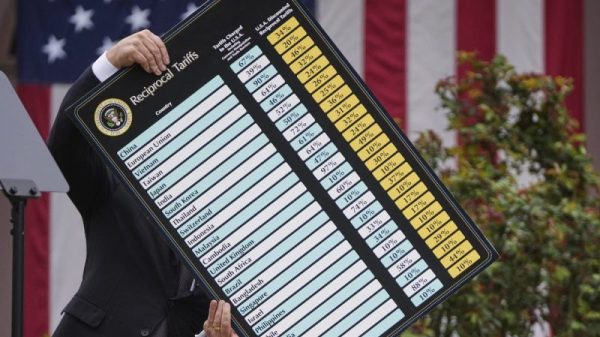James Buckley, who shared with his younger brother William a familial zeal for conservative politics and served in top positions in all three branches of government, including one term in the 1970s as an independent-minded U.S. senator, died Aug. 18 at a hospital in Washington. He was 100 and the oldest-living former U.S. senator.
His son Peter Buckley confirmed the death but did not provide a specific cause.
In political circles, Mr. Buckley was perhaps best remembered as the lead plaintiff in a landmark campaign finance lawsuit — Buckley v. Valeo — that in 1976 unraveled part of the post-Watergate regulation of political money. That ruling set the basis for a chain of court decisions, including Citizens United v. Federal Election Commission in 2010, that embraced the concept that money is equal to speech.
Trevor Potter, a former FEC commissioner and campaign finance reform advocate, has called the Buckley decision “the key case in this area in our lifetimes” because it permitted unlimited independent political spending.
Mr. Buckley’s role in the case stemmed from his successful third-party campaign for a Senate seat, and his belief that proposed spending and contribution limits would “squeeze out the ability of challengers to come in and confront the political establishment.”
Beyond that case, Mr. Buckley was known as a conservative intellectual with such a fervent interest in wildlife and the environment that he brought a pet boa constrictor with him to Yale as an undergraduate and later became a defender of the Endangered Species Act.
The federal government was a focus of his critical eye through a career that included joining the Senate in 1971, and serving during the Reagan administration as president of Radio Free Europe and then as a judge on the U.S. Court of Appeals for the District of Columbia.
Previously, he was vice president of the family oil business his father established, the Catawba Corp. — owned in equal shares by the Buckley children — which had invested in and managed energy interests around the world.
His first foray into electoral politics came in 1965, when he managed his brother William’s unsuccessful campaign for mayor of New York against a liberal Republican congressman, John V. Lindsay.
James Buckley would become an increasingly nettlesome figure to New York state’s moderate Republican establishment leaders, running unsuccessfully for the Senate as a third-party conservative against Sen. Jacob K. Javits (R) in 1968 before winning election to the Senate two years later.
In 1970, running again as the Conservative Party nominee, Mr. Buckley defeated the moderate Republican incumbent, Sen. Charles Goodell, and a popular Democrat, Rep. William Ottinger.
Although he wrote three books, presided over federal courtrooms and served in the Senate, Mr. Buckley was less well known than William, the writer and television host who founded the National Review. William was a stylish, witty, roguish and at times bombastic extrovert, while James was comparably reticent and was admired even by his philosophical adversaries as a sensitive listener.
According to John B. Judis’s biography of William Buckley, when his brother won a Senate seat and on victory night declared himself “the voice of the new politics,” a temporarily overshadowed William reminded family and friends, “La nouvelle politique, c’est God damn well moi.”
James Lane Buckley was born in Manhattan on March 9, 1923, and was the fourth of 10 children raised on the family estate in Sharon, Conn., by parents who educated their children in the classics, the doctrine of individual responsibility and Catholicism.
The patriarch, William F. Buckley Sr., became an independent oilman who often communicated with his children by memorandum. Newsweek magazine noted in 1970 that the children were raised to be “pure American and delightfully, deliberately, incorrigibly creatures of the 18th century. . . sheltered on great estates, escorted on grand tours.”
As a boy, James Buckley considered becoming an ornithologist. When he headed to Yale University, he brought along his pet boa constrictor, Martha. She remained with him in his dormitory until, as he reported later, she was “expelled” by campus authorities.
At Yale, he majored in English literature and wrote a column on world affairs for the Yale Daily News while advocating conservative positions in campus debates. After graduation in 1943, he served in the Navy in the Pacific during World War II and then completed Yale Law School in 1949.
His wife, the former Ann Cooley, whom he wed in 1953, died in 2011. In addition to Peter, of Aiken. S.C., survivors include five other children, James F.W. “Jay” Buckley of Bristol, R.I., Priscilla Illel of Valbonne, France, William “Bill” Buckley of Bozeman, Mont., David Buckley of Arlington, Va., and Andrew Buckley of Pembroke, N.H.; eight grandchildren; and two great-grandchildren. (James L. Buckley, who resided at a senior-living center in Bethesda, Md., was the last of his nine siblings.)
Mr. Buckley practiced law for several years before helping to manage the far-flung assets of the family firm. In that job, he traveled to exotic locations, including the Arctic, where he developed a lifelong interest in the plight of polar bears.
In 1968, Mr. Buckley made his first bid for public office. The New York state Conservative Party, founded six years earlier by his brother William, persuaded him to run for the Senate against Paul O’Dwyer, a liberal Democratic lawyer, and incumbent Javits, candidates whom Mr. Buckley said “spoke with one voice.”
He lost and resumed his global travels for the family business. He told reporters that when he returned from an extended trip in 1970, he was dismayed to find the country embroiled in unrest and protest, and felt obligated to reenter politics.
“We had the Chicago Seven trial, all the student unrest and the Panther trials, and when I returned,” he told Newsweek, “the whole weight of what was going on sort of crowded in on me.”
Mr. Buckley embarked on the first serious attempt by a Conservative Party candidate to win a U.S. Senate seat. His target was Goodell, who had been appointed in 1968 by Gov. Nelson A. Rockefeller (R) to fill out the unexpired term of Robert F. Kennedy, who had been assassinated.
In the Senate, Goodell had emerged as a leader of the opposition to President Richard M. Nixon’s Vietnam policy, and he fell into disfavor with the administration and with many conservative Republicans.
This time, Mr. Buckley won with 38.7 percent of the vote, becoming one of the best-known third-party Senate victors since Robert M. La Follette Jr. of Wisconsin won as a Progressive in 1934.
In 1974, Mr. Buckley grew outspoken in opposition to an amendment to campaign finance laws that placed new restrictions on individual donors while expanding public financing for presidential elections, effectively limiting total spending by any one campaign.
Mr. Buckley became the lead plaintiff in a coalition of conservatives and liberals that filed suit. The defendant in the case, Francis R. Valeo, was secretary of the Senate and was named because of his role in enforcing campaign finance rules.
The case went to the Supreme Court, which in 1976 upheld public financing of presidential elections but struck down limits on independent expenditures, candidate self-financing and overall spending. It was the opening of what critics called the biggest and most disconcerting loophole in post-Watergate reforms.
Mr. Buckley was defeated in the 1976 Senate race by Daniel Patrick Moynihan, a Democratic academician who had held Cabinet positions.
During the Reagan presidency, Mr. Buckley was named undersecretary of state and then president of Radio Free Europe. He later served on the federal court of appeals in the District until taking senior status in 1996.







































